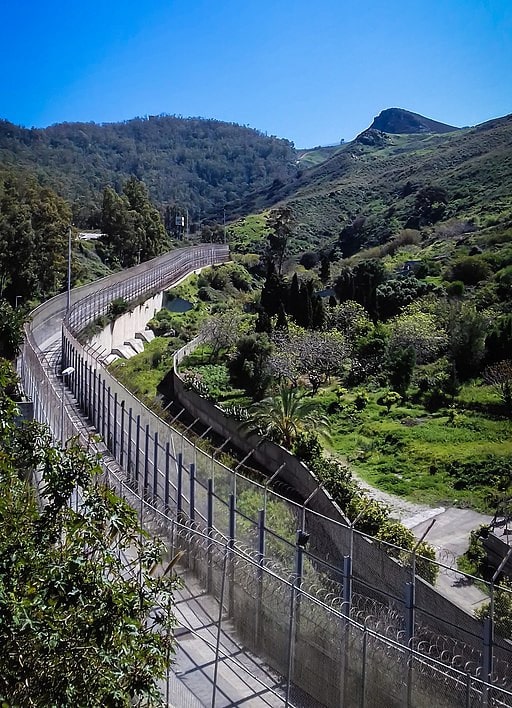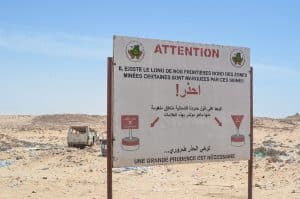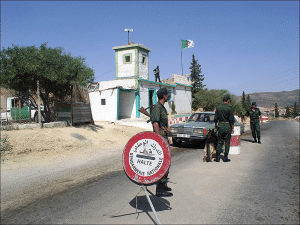A view of Spain’s fortified borders in another enclave, Ceuta, 2017 (source: WikiMedia Commons)
Last Friday, June 24, hundreds of migrants tried to surge the Morocco-Spain border fence at Melilla trying enter Spain. At least 23 migrants were killed at the stampede and according to Spanish sources, 140 Moroccan agents were wounded, as well as a minimum of 63 migrants. The enclaves Melilla and Ceuta are the only land borders of the European Union with Africa, causing a large influx of refugees towards these areas, and extensive border patrol measures to prevent migrants from crossing.
Border patrol repression
The Moroccan human rights organization AMDH Nador indicated that the rush had followed the repressive eviction of migrants from an illegal camp nearby the border. Friday’s events went accompanied with extensive violence, as migrants fought Spanish and Moroccan security forces for more than two hours. Human rights organizations have requested a thorough review of border patrol actions. Esteban Beltrán, the director of Amnesty International Spain said that “although the migrants may have acted violently in their attempt to enter Melilla, when it comes to border control, not everything goes. He added that “the human rights of migrants and refugees must be respected and situations like that seen cannot happen again.”
First attempt since Spanish-Moroccan mending of relations
Friday’s crossings are the first since Spain and Morocco mended diplomatic relations in March 2022, after a years-long dispute on the Western Sahara. The territory is a former colony of Spain, and annexed by Morocco in 1976. Since then, Moroccan authorities try to pull the region into Moroccan authority, while local groups such as the Polisario Front push for independence for the Sahrawi people. The UN has repeatedly stressed that the Sahrawi have a right to self-determination. Recently, Spain has endorsed Morocco’s plan to give the Western Sahara autonomy inside the Moroccan state.
When Spanish-Moroccan ties were on a low in the beginning of 2021, 10,000 migrants had surged into the enclave of Ceuta as Moroccan guards did not try to stop them. This was widely seen as a retaliation for Spain’s ties with Polisario leaders. However, since the end of the diplomatic crisis, migrant crossings to the Canary islands (another Spanish territory close to Morocco) have decreased with seventy percent, Spanish government figures say.
“Indiscriminate use of violence to manage migration”
Hundreds of migrants did succeed last Friday in crossing into Spanish territory, subsequently being treated in local migrant enters. Meanwhile, Spanish PM Pedro Sanchez denounced the the surge as a “violent assault” and an “attack on the territorial integrity” of Spain. “If there is anyone responsible for everything that appears to have taken place at that border, it is the mafias that traffic in human beings,” he said. Next to Amnesty and various other rights organizations, the Spanish Commission for Refugees (CEAR) also condemned “the indiscriminate use of violence to manage migration and control borders”.
One might question the effectivity and tenability of Europe’s current policies to prevent migrants from crossing into its mainland. While unemployment rates are extremely low in the continent, migrants searching for work remain violently repressed at its borders. The EU pays countries as Morocco millions of euros deter migrants, while also violently pushing back migrants themselves across the Mediterranean. This securitization of migration has terrible events such as in Melilla as a consequence. A thorough review of Europe migration polices remains pivotal towards moving to more durable policies that regulate migration in a much more human-dignified manner.
Sources: Al Jazeera I Al Jazeera II AP News NOS
Photo: WikiMedia Commons



